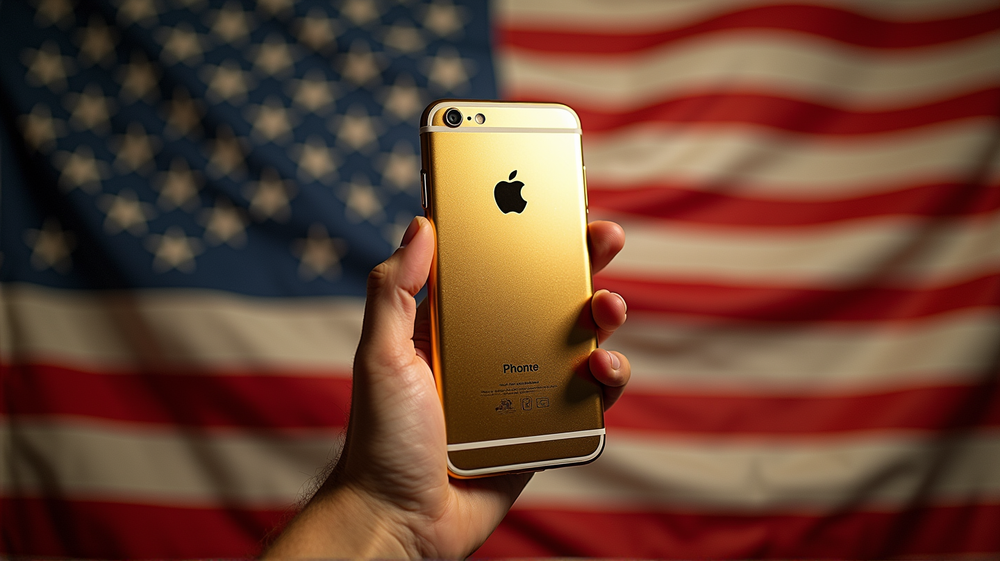When the Trump family presented their newest innovation, a gleaming phone known as the T-1, against the backdrop of a giant American flag, the message was unmistakably patriotic: “Made in the U.S.A.” Yet, what seemed a straightforward declaration has since transformed into a multifaceted debate, challenging the very definition of ‘American-made.’
Altering the Label: What’s Behind the Change?
The term ‘Made in the USA’ carries weight, regulated by the Federal Trade Commission (FTC), demanding that products be “all or virtually all” manufactured within U.S. borders. Yet, as the Trumps shift their product description to an “American-Proud Design” and “brought to life right here in the U.S.A.,” it raises questions. Could this change in labeling be a strategic maneuver to bypass regulatory requirements, or does it reflect the complexities of modern manufacturing?
The Obstacles of Domestic Manufacturing
According to cell phone technology expert Francisco Jeronimo, while the notion of constructing the T-1 phone entirely in the United States holds a romantic appeal, it encounters formidable challenges. Jeronimo highlights the higher costs and scant infrastructure as formidable hurdles. He suggests that while assembling components locally might be feasible, sourcing essential parts from abroad remains inevitable.
Trump’s Vision: A Resurrection of American Manufacturing?
In their publicity efforts, Trump’s sons Eric and Don Jr. not only emphasize the phone’s American roots but also hint at a grander scheme, including a nationwide mobile phone service. Priced at $47.45 as a nod to their father’s political legacy, this service claims to keep operations and customer care staunchly within the U.S.
Ethical Concerns Amid a Growing Business
Amidst the grandeur and a promising initiative, ethical questions arise. Given that President Donald Trump supervises the Federal Communications Commission, which regulates telecommunications, concerns about conflicts of interest have emerged. On one hand, the venture serves as a testament to the Trump family’s business acumen; on the other, it poses questions about regulatory fairness.
The Economic Implications: Could Tariffs Shake the Market?
In a strategic chess move, President Trump has hinted at imposing tariffs on tech giant Apple, now a direct competitor in the American-made venture. By threatening a 25% levy on iPhones predominantly produced in India, Trump raises stakes on domestic versus international production practices.
The unfolding saga of the Trump family’s new phone is a microcosm of larger economic issues. As they attempt to root their latest venture firmly in American soil, the debate over ‘Made in the USA’ and the broader implications on manufacturing continue. According to The Albertan, this saga is far from over.













